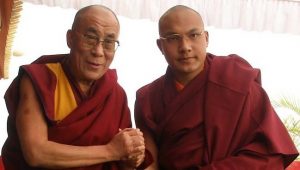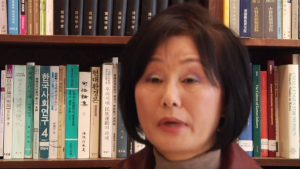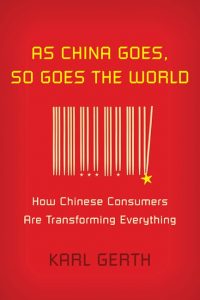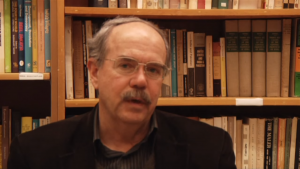Pre-Election Singapore Clamps Down on Social Media
Memo #58 – Social media including Facebook and microblogging sites such as Twitter galvanized the street protests in Tunisia and Egypt. Fears of contagion have led China to censor ‘Egypt’ on its microblogging sites. As Singapore gears up for its general election, due by February 2012, its long-serving People’s Action Party (PAP) government is increasingly nervous over the impact of social media and is finding ways to muzzle it.
In Xinjiang, How Local Prejudices Hinder Economic Development
Memo #57 – According to Marxist theory, only a truly socialist society will produce equality at all levels and eliminate class struggle. Likewise, Chinese political leaders believe that only through socio-economic equality can China eliminate conflict and struggle between the majority and minorities, to solidify national unity. “Development” is thought to be crucial to achieve socio-economic equality, but ethnic prejudice is likely to fuel conflict.
Diverging Patterns for Incorporating Immigrants in Korea and Japan
Memo #56 – In the mid 2000s, Korea and Japan unveiled unprecedented proposals for immigrant incorporation. This included the Basic Act on the Treatment of Foreigners in Korea and the Ministry of Internal Affairs and Communications’ plan for Multicultural Coexistence Promotion in Local Communities in Japan. These plans acknowledged for the first time the need to manage foreigners settled within each country. But they also represented contrasting frameworks for their incorporation. In Korea, there was centralized rights-based legislation that targeted specific immigrant groups and in Japan, there were decentralized guidelines that prioritized community-based partnerships.
Karmapa Controversy – Raid on a Tibetan Monastery in India
Memo #55 – There is media frenzy in India following a police raid on the temple residence of Ugyen Thinley Dorje (ཨོ་རྒྱན་འཕྲིན་ལས་རྡོ་རྗེ།) where $1.6 million in different foreign currencies – some in Chinese yuan – was found. Ugyen Dorje is the 17th Karmapa (ཀརྨ་པ་) and is second only to the Dalai Lama in Tibetan Buddhism.
Examining North Korean Foreign Policy (Video Interview with Dr. Kyung-Ae Park)
Memo #54 – We are witnessing rapid changes in the foreign policy environment of North Korea. These changes have serious regional and global implications. Nuclear weapons, famine, refugees, human rights, and regional security, are issues that, according to Professor Kyung-Ae Park, require a thorough understanding of the domestic and external forces behind North Korea’s foreign policy. Her book, New Challenges of North Korean Foreign Policy brings together 10 of the world’s leading experts to examine the challenges facing North Korea in the foreign policy arena today.
Hu Jintao’s Promise to Business: Can He Deliver?
Memo #53 – Two weeks ago, fourteen of the world’s most powerful CEOs converged on Washington for a brief 45 minute opportunity to engage Chinese President Hu Jintao (Google was noticeably absent). Of the many issues raised, one has been China’s renewed commitment to the protection of U.S. corporate interests in the Mainland. President Hu voiced support for reform, opening-up, transparency, as well as a fair and just investment climate. Hu then highlighted intellectual property (IP) and government procurement as areas where foreign firms have equal treatment to their Chinese counterparts.
Chinese Consumers: The Driving Force of Global Change
Memo #49 – Thanks to President Hu Jintao’s visit to Washington this week, US-China trade tensions are again front page news. There are bright spots: Seattle-based Starbucks recently announced plans to triple its number of stores in China to 1,500 by 2015. And the chain plans to use its outlets there to push more consumer products, including instant coffee.
Why Scholar-Writers Yang Jiang and Qian Zhongshu are Important to China Today
Memo #48 – In this set of interviews, Dr. Wendy Larson (Oregon), Dr. Theodore Huters (UCLA), and Dr. Christopher Rea (UBC) talk about two of modern China’s most famous scholar-writers, Qian Zhongshu (錢鍾書) (1910-1998) and Yang Jiang (楊絳) (b. 1911). They discuss why this husband-wife pair and their writings are important to China today.
OECD’s PISA, Media Sensationalism, and Education Reform in Japan
Memo #47 – The OECD’s Programme for International Student Assessment (PISA), conducted every three years, has become a major event shaping education policy in many of the participating nations. The PISA report provides a comprehensive set of comparative data on 15 year old students’ performance, but its national rankings based on mean test scores in particular attract the most attention. Various policy actors use the rankings to affirm or scandalize ongoing education reform. The media is one of the key actors determining PISA rankings’ domestic impact, as they interpret them for the public.
OECDのPISAとメディアのセンセイショリズムが教育論争に与える影響
Memo #47 – 2000年以来3年毎に実施されている経済協力開発機構(OECD)のPISA(Programme for International Student Assessment)が、参加国の教育政策に大きな影響を与えている。この国際学力テストは、義務教育終了時点(15歳)の子どもたちの学習に関する幅広いデータを提供することを意図しているが、とりわけテストの平均値を基にした国別ランキングが注目を集めている。国内の研究者、政治家、官僚、コメンテーターらは、現行の教育政策を批判または正当化する道具としてこのランキングを用いるが、とりわけランキングに特定の解釈を与えて、それを社会一般に流布するメディアは、PISAが一国の教育政策に与える影響を大きく左右する。






